Speakers’ Abstracts and Biographies

Frank Löffler, Ph.D.
Governor’s Chair Professor and Director, Center for Environmental Biotechnology, Department of Microbiology, Department of Civil & Environmental Engineering, Department of Biosystems Engineering and Soil Science, University of Tennessee – Knoxville, Tennessee
Oak Ridge National Laboratory, Biosciences Division – Oak Ridge, Tennessee
Country: United States of America
Title: From Waste to Value – What Microbes Can Teach Us.
Abstract: The Anthropocene describes the period in Earth’s history during which human activity has been the dominant influence on climate and the environment. The generation of various waste streams contributes to environmental degradation, and the consequences on the planet’s climate and (Loffler continued) ecosystems are becoming more and more obvious. The microbial world provides a treasure trove of untapped metabolic potential, and new biotechnologies can give wastes real value and transition linear processes to a circular economy. “Waste is a lack of imagination” and the goal of this presentation to encourage “microbial thinking”, as the microbial world has perfected nutrient cycling and energy sharing.
Biography: Frank Löffler received a B.S. degree in Biology and an M.S. degree in microbiology from the University of Hohenheim in Stuttgart, Germany. He performed his doctoral studies in biotechnology at the Technical University Hamburg-Harburg and received a Ph.D. degree (summa cum laude) in 1994. As an Alexander von Humboldt fellow, he conducted research in the NSF Center for Microbial Ecology at Michigan State University, before joining the School of Civil & Environmental Engineering at the Georgia Institute of Technology in Atlanta, GA. Since 2010, Dr. Löffler serves as Governor’s Chair Professor at the University of Tennessee and Oak Ridge National Laboratory, and he directs the university’s Center for Environmental Biotechnology. The Löffler laboratory explores the physiology, diversity, distribution, and ecology of microbes that control the turnover of nutrients and pollutants, with the goal to harness, manipulate, and predict their functions in both natural and managed habitats. His research has been funded by the DOE, EPA, NIH, DOD, and NSF. He has published over 200 manuscripts and book chapters and has edited a seminal book, Organohalide-Respiring Bacteria. His work has been cited more than 16,000 times and he has an H-index of 67. Dr. Löffler is a fellow of the American Academy of Microbiology.
Email: frank.loeffler@utk.edu
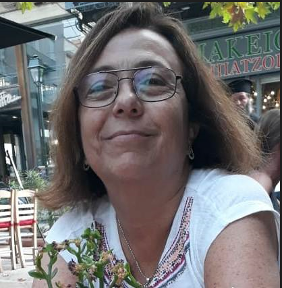
Martha Bargiela, Ph,D.
Professor in Analytical Chemistry in the University of Buenos Aires, School of Agronomy.
Country: Argentina
Title: Anaerobic Co-Digestion of Waste As an Environmental Alternative for Improvement of Biogas Production and Digest
Abstract: To achieve the highest efficiency in the biogas production process, several factors can be controlled: the quality of the organic substrate to be degraded, the environmental conditions in the biodigester, and the presence of inhibitors that affect microbiological activity.
The substrates that can be used in methanogenic fermentation can be, in addition to energy crops, organic waste of vegetable, animal, agro-industrial, forestry, domestic or other origin. The biochemical characteristics of these residues must allow the development and microbial activity of the anaerobic system. Both manure and sewage sludge present these elements in the appropriate proportions. There are biodegradable wastes, from different origins, that have a relatively low biogas production potential due to their low organic matter content, compared to other types of waste, in addition to their low biodegradability.
To achieve a high production of biogas it is necessary to optimize anaerobic fermentation, modifying and improving the processes. Anaerobic Codigestion (AcoD) is the treatment of a set of organic wastes of different origin and composition, with the aim of taking advantage of the complementarity of the compositions, allowing greater process efficiencies and thus achieving high biogas production and waste recovery. organic.
The AcoD is believed to be superior to mono-digestion in terms of a well-balanced macro- and micronutrient for anaerobic microorganism, ideal moisture content, microbial metabolism, buffer capacity, biodegradability, and dilution of toxic compounds.
The presence of solid urban waste together with effluents from agro-industrial activities in peri-urban areas generates a great problem in Latin America, which is why anaerobic co-digestion is an appropriate treatment methodology that collaborates with the circular economy.
In our laboratory, studies have been carried out on the complementarity of various agro-industrial wastes as well as separable fractions of urban solid waste, in order to improve biogas production and obtain a more stable organic amendment.
Biography: Dr. Bargiela work focuses on water quality, the evaluation of contamination and degradation of land and rivers through indices, the relationship of contaminants in water with the solid phase, especially with the organic matter of soils and sediments, and the degradation of organic matter from various wastes from different activities to obtain biogas. Her main study area is in the Matanza Riachuelo River Basin in Buenos Aires. She has published two books and various book chapter, published many journal articles. She has participated in international projects on land degradation assessment, as guest speaker at international seminars, in editorial boards for book publications, congress evaluation committees, and various journals group of reviewers. She teaches courses in Applied Chemistry, Pollution Chemistry and Toxicology, and Water and wastewater treatment for undergraduate and postgraduates students.
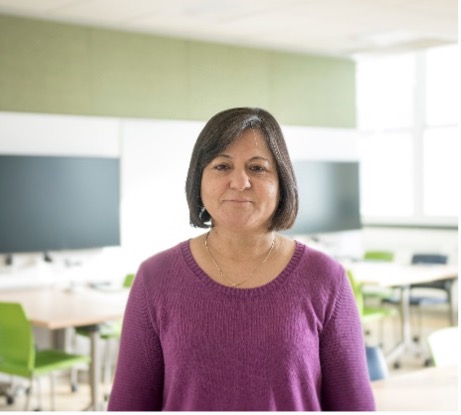
Madhu Khanna, Ph.D.
Alvin H. Baum Family Chair and Director, Institute for Sustainability, Energy and Environment, University of Illinois, Urbana- Champaign
Country: United States of America
Title: “Quantifying the Multi-Ecosystem Impacts of Cellulosic Biofuels.”
Abstract: Cellulosic biofuels can be produced from multiple feedstocks that differ in their impacts on land use, greenhouse gas emissions and nitrogen runoff. The economically incentivized mix of feedstocks can lead to trade-offs among their environmental impacts. We develop an integrated economic-ecosystem modeling approach to quantify the synergies and trade-offs among multiple ecosystem impacts and the uncertainties in these effects. We show that cellulosic biofuels have significant potential to reduce greenhouse gas emissions but their effects on water quality are mixed depending on the mix of feedstocks incentivized. We discuss the implications of these findings for the design of policy incentives to achieve more sustainable biomass production.
Biography: Dr. Madhu Khanna is the ACES Distinguished Professor of Environmental Economics in the Department of Agricultural and Consumer Economics and Alvin H. Baum Family Chair and Director of the Institute for Sustainability, Energy, and Environment, at the University of Illinois at Urbana-Champaign. She received her Ph.D. from the University of California at Berkeley. Her research is at the intersection of agricultural, energy and environmental economics and has led to more than 150 peer-reviewed publications that are widely cited. She has received funding from several federal agencies in the US and served as the Theme Leader for the Sustainability Theme in the USDOE funded Center for Advanced Bioenergy and Bioproducts Innovation. She has served on the USEPA Science Advisory Board and as a member of the National Academies of Sciences committee on low carbon transportation fuels. She is a University of Illinois Scholar, a Stanford Woods Institute of Environment Leopold Leadership Fellow and a Fellow and past President of the Agricultural and Applied Economics Association.
Email: khanna1@illinois.edu
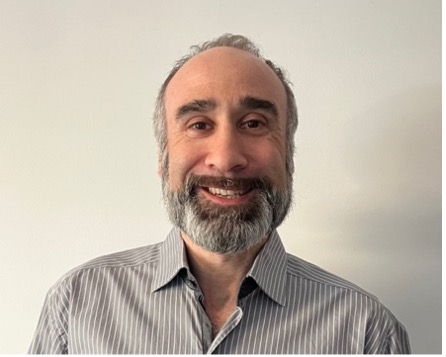
Gustavo Schujman, Ph.D.
Co-Founder & Manager of Inmet SA
Professor of Microbial Genetics, Department of Microbiology, Rosario National University. Career Researcher of Argentinian Scientific and Technological Council
Country: Argentina
Title: “Biotransformation of agroindustrial residues and byproducts into bioplastics”
Abstract: The presentation discusses how metabolic engineering of bacteria and fermentation processes were applied to transform byproducts of different industries into biomaterials. The processes developed are environmentally friendly and produce a biodegradable bioplastic, reducing wastes and increasing added value.
Biography: Gustavo Schujman is cofounder of Inmet SA, a pioneering metabolic engineering company in Argentina. He studied Biochemistry at La Plata National University, obtained a PhD at Rosario National University and performed doctoral and postdoctoral research at MIT and Pasteur Institute of France. He is a Career Researcher of Argentinian Scientific and Technological Council (Conicet) and Professor of Microbial Genetics, Department of Microbiology, Rosario National University.
Email: gustavo.schujman@inmet.com.ar
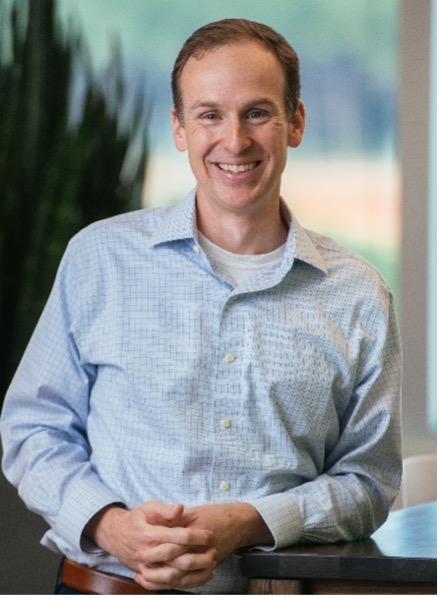
Brian Wanamaker, Ph.D.
Legal Counsel, North America; Hitachi Zosen Inova
Country: United States of America
Title: “Early Biogas Market Feedback from the Inflation Reduction Act.”
Abstract: The United States recently enacted the Inflation Reduction Act, which, among other things, provides significant federal incentives to promote biogas projects. Those incentives have jolted the biogas market: causing some projects to change direction, tipping some projects across the line from (Wanamaker continued) finically marginal to financially sensible, and likely accelerating the growth in an already rapidly growing US market. This talk provides some of HZI’s anecdotal observations about the initial effect of the legislation in order to help inform future policymaking.
Biography: Brian Wanamaker is the North American legal counsel for Hitachi Zosen Inova, the renewable energy arm of Hitachi Zosen Corporation and a world leader in anaerobic digestion and biogas upgrading technology. Brian previously served as General Counsel to United States Senator Cory Gardner and as the Interim Chief Legal Officer of Ruby Tuesday, Inc. Brian began his career as a litigator in the Chicago office of Winston & Strawn and has served as a law clerk in the federal and state courts. He received his JD from the Washington University School of Law in St. Louis and his BA from the University of Kansas.
Email: brian.wanamaker@hz-inova.com
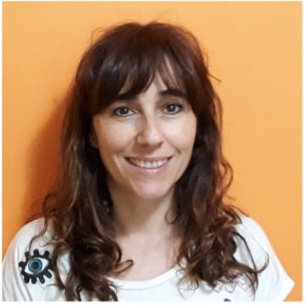
Patricia Alina Bres, M.S.
Researcher, Institute of Microbiology and Agricultural Zoology (IMyZA), National Institute for Agricultural Technology, Argentina.
Country: Argentina
Title: Use of Livestock Manure for the Production of Biogas and Digestates.
Abstract: Anaerobic digestion represents one of the most viable alternatives to transform livestock manure into two products of great added value, biogas, a renewable energy source, and a semi-liquid effluent called digested, with great potential to be used as biofertilizer. However, most of the biogas plants installed have focused on the energy recovery of biogas, but not on the use of digested. There is a great lack of knowledge about the properties of digested in our country, about the proper management and application techniques to minimize environmental risks. One of the great challenges faced by these biogas plants is to find technological alternatives that increase the valorization of the digested, from an agronomic, economic and environmentally sustainable point of view.
Biography: Degree in Environmental Analysis (2005) from the National University of San Martin (UNSAM). Since 2005 he has worked in the Waste Transformation Laboratory, specializing in the anaerobic biodigestion of organic waste, such as the organic fraction of
(Bres continued) household waste, poultry waste and pig effluents. She performs anaerobic biodegradability tests of different inocula and organic waste, in reactors with bach feed. It evaluates the efficiency of the anaerobic process in semi-continuous feed reactors, as well as studies the quality of the effluents generated during the degradative process.
Email: bres.patricia@inta.gob.ar
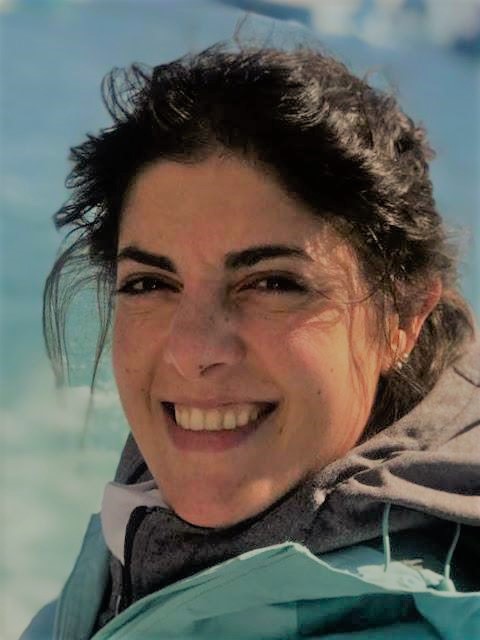
Vanina Ambrosi, Ph.D.
Researcher at INTA (National Institute of Agricultural Technology). Assistant Professor Faculty of Pharmacy and Biochemistry, University of Buenos Aires.
Country: Argentina
Title: Use of a bovine by-product as a food additive
Abstract: During bovine slaughter, large volumes of by-products are obtained. The efficient use of these, is important for the profitability of the meat industry. Peptides derived from the hydrolysis of different by-products of bovine origin (blood, bones, etc.) have bioactive or techno-functional properties such as antihypertensive, antioxidant, antimicrobial capacity, among others. Therefore, these peptides have the potential to be used in the formulation of foods as functional additives. We evaluated the production of protein hydrolysates with antioxidant capacity from bovine by-products which could replace the synthetic additives commonly used in food. Our results provide an alternative for the recovery of by-products that would optimize the sustainability of the Argentine beef industry.
Biography: Dr. Vanina Ambrosi serves as a researcher at the National Institute of Agricultural Technology in the Biochemistry and Nutrition Area of the Institute of Food Technology. She received her Ph.D. from University of Buenos Aires, and her Food Engineer and BSc in Biotechnoly from the National University of Quilmes. Dr. Ambrosi research focus on technologies for obtaining food and bioproducts utilization of residues, discards and agri-food and agricultural by-products; food processing techniques to obtain hypoallergenic products; and immunochemical & molecular techniques for fresh and processed agri-food authentication and allergen detection. She participates in various INTA, PICT and UBA Projects. Dr. Ambrosi teaches undergraduate courses at the National University of Morón, and undergraduate & postgraduate courses at the University of Buenos Aires. She is a Member of the Interinstitutional Food Allergens Platform and participates at the INTA Food Allergens Platform.
Email:ambrosi.vanina@inta.gob.ar- website: https://inta.gob.ar/personas/ambrosi.vanina
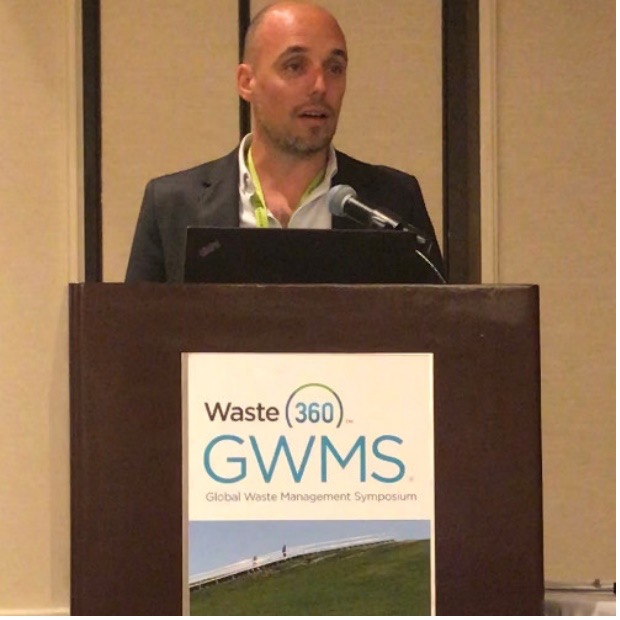
Rodrigo M. Pontiggia, Ph.D.
Development and Innovation Director, Benito Roggio Ambiental, Argentina.
Country: Argentina
Title: “Use of Biological Mud in Soil Restoration: Five Years of Technical Advances
Abstract: The design of technosols using mixtures of discarded soils and other inputs such as organic mud is an innovative option for soil restoration and sustainable environmental production. These mixtures fulfill the productive and environmental functions of natural soils and at the same time are an integral solution in their management as waste. From the point of view of sustainable production, soil onservation is a key challenge for humanity as reflected in Sustainable Development Goals 12 and 15. In Argentina, there is currently no installed capacity for the use of sludge generated by municipalities and industries such as paper and food, despite the fact that they are produced in large quantities. It is necessary to generate information on the use of technosols in production systems under real field conditions, allowing this new value chain to be promoted. The presentation will focus on a new project that allows to create a grassland with a dense vegetation cover, significantly increasing the visit of different birds, beneficial soil insects, pollinating insects and wild animals that contribute to the recomposition of the original ecosystem of the area.
Biography: PhD in Chemistry (UBA), Bachelor of Chemistry and Food Technology, University of Belgrano. PhD Fellow, Research Institute in Genetic Engineering and Molecular Biology/CONICET (2001–2009), Visiting Researcher, J W Goëthe Universität, Germany, Scholarship by Boehringer Foundation. He has published articles and given numerous lectures on waste. He is currently Development and Innovation Manager of Benito Roggio environmental where he was responsible for the formation of the R + D + I area. He has led the projects: Use of Biosolids of Sewage origin for vegetation cover of Landfill; Use of stabilized organic fraction in MSW MTB plant (1250 tons / day) for the construction of biocoverage in Landfill; Construction of laboratory and transportable plant of Anaerobic Digestion (with a national award and international recognition).

Shawn Robert Campagna, Ph.D.
Professor, Department Head, Department of Chemistry, University of Tennessee
Country: United States of America
Title: Metabolomics Investigations of Environmentally Relevant Bacterial Consoria.
Abstract : Recent advanced in liquid chromatography – mass spectrometry – based metabolomics have furthered understanding of metabolism in a variety of systems. Not only can such techniques be used to discover biomarkers for the physiological state of the system, they can also be used to probe the global metabolism of a sample by providing information on the concentration of thousands of molecules (I.E. the metabolome) from a single sample. Several vignettes studying the metabolism of bacterial consortia from aquatic and soil ecosystems will be discussed. These data will highlight the benefit of including measures of the physiology of microorganisms in environmental studies.
Biography: Dr. Campagna completed his B.S. in Chemistry at North Carolina State University in 2000 and conducted research with Prof. Jonathan S. Lindsey on the chemical synthesis of bacterial chromosomes. He received his Ph.D. from Princeton University in 2006, after working with Prof. Martin F. Semmelhack on a joint project with Profs. Bonnie L. Bassler and Frederick M. Hughson to characterize the chemical properties of an inter-species bacterial signaling molecule, autoinducer-2. Dr. Campagna then performed post-doctoral fellow research with Prof. Joshua D. Rabinowitz at the Lewis-Sigler Institute for Integrative Genomics at Princeton University where he developed mass spectrometric methods for the identification of novel biochemical pathways and natural products from whole cell extracts. He joined the Chemistry Department at UT Knoxville in August 2007 and became a full professor in 2017. Dr. Campagna is an expert in chemical biology with a focus on metabolomics and lipidomics, and he has published over 110 publications in his independent career.
Email: campagna@utk.edu
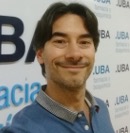
Guillermo J. Copello, Ph.D.
Adjunct Professor and Independent Researcher of Departamento de Ciencias Químicas e Instituto de Química y Metabolismo del Fármaco (IQUIMEFA-CONICET), Facultad de Farmacia y Bioquímica, Universidad de Buenos Aires, Argentina.
Country: Argentina
Title: Natural Polymers based materials: back to the future
Authors: Rodrigo Nuñez, María Luz Peralta Ramos, María Emilia Villanueva, Andrea Mebert, Guillermo J. Copello
Abstract: Fossil based polymers have been studied from over a century and this research has been very successful in therms of the taking full profit of its source and regarding the performance of the obtained materials. Nevertheless, the massive use of these polymers is associated with long therm pollution. Natural polymers are sustainable building blocks for many materials. They have also been known for more than a century but their R&D for material obtaining has been less intensive. Oil shortage and environmental pollution has renewed and triggered the natural polymer interest and their materials have moved to a priority level in most countries research agenda. Cellulose and natural rubber are some of the long time studied, and a few have raised as promising stars of the field, such as chitosan, but many, such as pectin, chitin and keratin, are understudied and even more are still to be considered.
Biography: G. Copello is an Adjunct Professor at Departament de Ciencias Químicas, Facultad de Farmacia y Bioquímica, Universidad de Buenos Aires and an Independent Researcher the of CONICET at the Grupo de Investigación en Nanotecnología, Polímeros y Sustentabilidad (GINaPS) from the Instituto de Química y Metabolismo del Fármaco (IQUIMEFA-CONICET). He earned his PhD degree at Universidad de Buenos Aires. His research focuses in the development of natural polymer based materials with the aim of replacing fossil based polymers. His recent projects involves the obtaining of natural polymer derivatives and nanocomposite materials for their application in several fields such as medicine, environment and biotechnology. He has published 56 peer reviewed journal articles, 10 book chapters and 2 patents in his field. His and his group work embraces from basic to the technological field and has awarded with several recognitions for their innovative developments.
Email: gcopello@ffyb.uba.ar
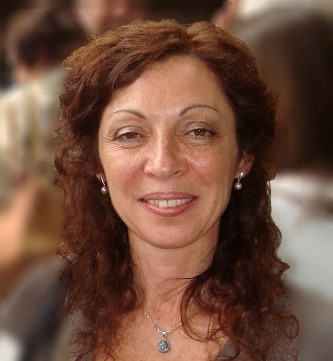
Ana R. García, Ph.D.
Associate Professor and Director of the chair for Inorganic and Analytical Chemistry at the Agronomy Faculty of UBA (Buenos Aires University)
Country: Argentina
Title: “Challenges and opportunities in feedlot waste management. Towards a circular economy”
Abstract: In recent years, beef cattle production in the province of Buenos Aires has turned its former extensive system (based on pastures) into an intensive one where animals are fed in open-air pens, with high energy and digestibility diets. Solid manure accumulates on the soil surface of such pens, generating large volumes of effluents in rainy seasons (dissolved manure). The biological degradation of manure releases a large amount of labile organic matter, nutrients (N and P) and salts, minor constituents such as metals (Cu, Zn, and Fe) and other organic compounds (antibiotics, antiparasitic, hormones, and other ionophores), as well as pathogens (Giardia, Escherichia coli). Because of this, manure is defined as a potential pollutant of water sources but at the same time as a resource for agricultural production. Its polluting action occurs when the generated runoffs (effluents) are not well managed and reach water sources degrading their quality. On the other hand, its action as an organic fertilizer is due to its high concentration of nitrogen and phosphorus (essential elements for growth and development of crops) as well as its ability to retain water. Using these residues as a resource for agricultural production would reduce fertilizing costs and limit environmental impacts. For this, it is necessary to establish an integrated nutrient management plan (NMP) to regulate the actions carried out from the moment the manure is generated (in the feedlot pens) to its destination in an agricultural field, including the collection and treatment system. The NMP must be site specific, according to the productive system, the climatic and soil characteristics of the region, and the land space available for the reuse of treated manure. An effective management based on NMP; leads to achieve the highest productive efficiency, avoiding the exit of pollutants from the system and allowing the recovery and reuse of nutrients, following the basic principles of a circular economy
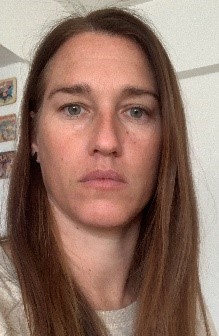
Agustina Branzini, Ph.D.
Technical Advisor, Secretary of Agriculture, Livestock and Fisheries, Argentina
Country: Argentina
Agustina Branzini, Secretary of Agriculture, Livestock and Fisheries, Argentina
Title: The Role of Biogas As a Bioeconomic Input in Argentina
Abstract:
Biography: Dr. Branzini has a bachelor’s degree in Biological Sciences and a Ph.D. in Agricultural Sciences from the University of Buenos Aires. She specializes in soil remediation. Currently, she works in the Ministry of Agriculture, Livestock and Fisheries as a technical advisor on issues related to bioenergy, the environment and sustainability. She is a professor at the School of Agriculture of the University of Buenos Aires (FAUBA) in the Bachelor of Environmental Sciences, in undergraduate and postgraduate subjects related to soil remediation and solid waste treatment.